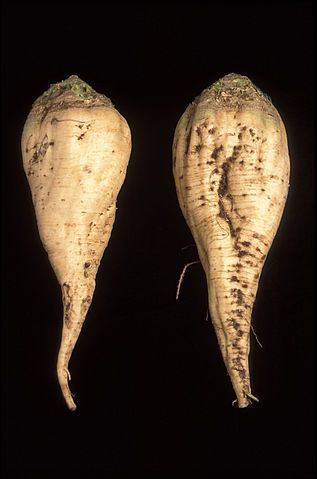Biofuels – Can They Scale?
I may have mentioned that my wife bred race horses for many years, and her interest in the subject wound us up in a fairly rural area of California. As I like to do on weekends, I took a long walk yesterday, during which I happened to go past perhaps 40 acres of alfalfa, I presume as horse feed. This made me think of the basic energy issues associated with converting energy from the sun into chemical energy, which, in turn, reminded me of this piece a friend sent me on growing sugar beets as the feedstock for ethanol.
I remain unconvinced that there is a real future in converting the plants we grow into biofuels. Obviously, there are the normal array of resource issues: land use, effects on the food supply, and all the ecological (and financial) cost of planting, irrigation, fertilization, harvesting, and processing. But also militating against growing and type of plant for fuel, I would think, is the basic thermodynamics of converting the radiant energy of the sun into chemical energy. How efficient can this possibly be, given all the metabolic processes that need to happen to keep the plant alive?
Perhaps some heavy-duty botanist could comment on this.


One of my tasks at a previous company was to investigate the potential of algae and other crops for biofuel, and from what I discovered at that time, it would appear that the efficiency of photosynthesis to energy stored in biomass is at the very best in the 3 to 5% range – and that with all the dominoes stacking perfectly.
Let the season be to wet, too dry, too hot or cold, or have weeds, pests etc affect the crop, and efficiency drops markedly. The same is true if at any time, the plant feed, crop handling or harvesting is in any way sub-optimal.
Having in a very good case converted perhaps 2 to 3% of the sun’s energy into plant material, the material then has to be processed, dried, pressed, fermented, pyrolysed or whatever has to be done to turn it into fuel.
Taking into account inputs such as energy, water, fertilizer, labor, buildings and farm tracks as well as everything else needed to produce the biofuel including the embodied emissions of all these processes, and I would be surprised if anyone has used biological systems to convert more than around 1% net of the sun’s energy falling on a field into useable biofuel.
Even then, if you use the fuel in an internal combustion engine, you may well average only around 15 to 20% energy at the wheel compared to chemical energy in the fuel.
On this basis, it would appear to make more sense in terms of net emissions to install solar panels or wind turbines almost anywhere that it is possible to displace fossil fuel use in a power plant than to grow any kind of crop purely as a biofuel.
I used to be a supporter of biofuels, but I have to say my enthusiasm has waned over the years. The issue, of course, is that scalability, which Craig has pointed out, simply isn’t there.
I lived in Minnesota when Norm Coleman was a US senator and witnessed him, along with the other corn belt senators, relentlessly beat the drum for ethanol. It seemed like a good idea at the time, creating an additional market for excess feed corn to give farmers a boost. But now it seems the shortcomings of biofuels are being more closely scrutinized.
If we need to subsidize an alcohol additive to reduce foreign oil imports, I think methanol is a better alternative. It can be made efficiently from natural gas and there is encouraging research progress on making it from waste CO2. Legislation has been bandied about congress for some time to encourage automakers to adopt a tri-fuel engine, capable of running on any combination of gasoline, ethanol and methanol.
It would be nice to see ethanol get some competition from methanol for a change.
May the best alcohol win!
Perhaps genetic engineering could improve the efficiency of photosynthesis.